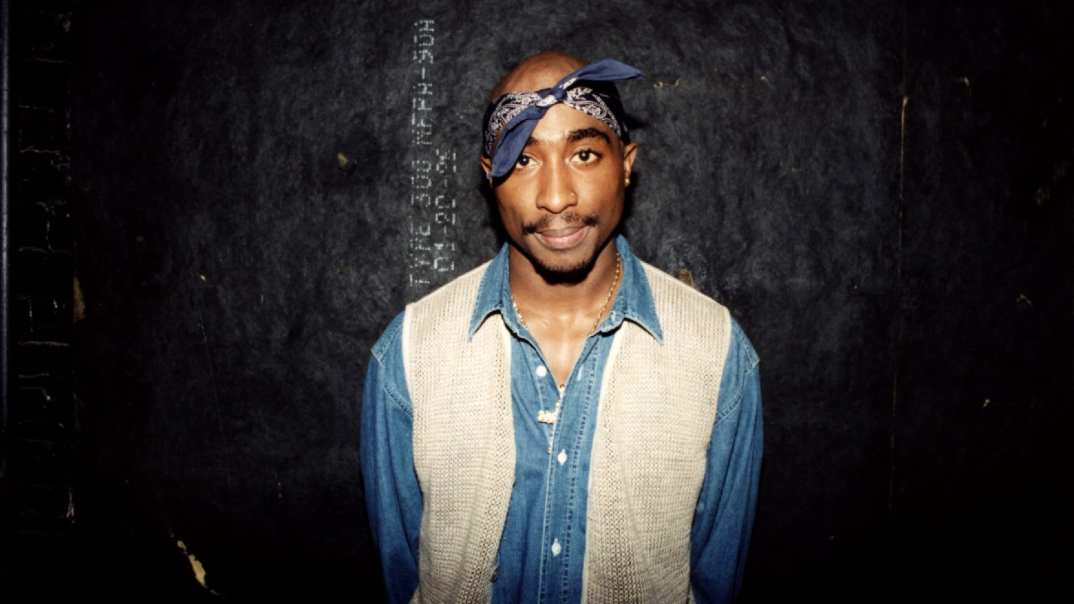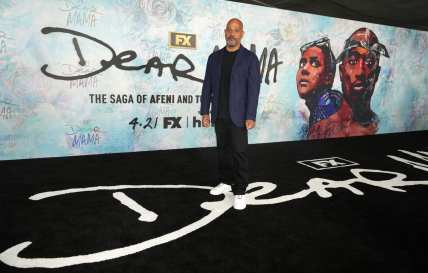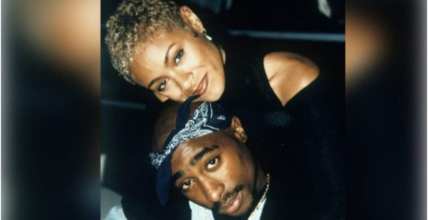5 reasons why ‘Dear Mama’ is the best Tupac documentary ever
OPINION: The five-part series is, by far, the most insightful look into who Tupac was by centering his story around his mother, Afeni Shakur, and their relationship.

Editor’s note: The following article is an op-ed, and the views expressed are the author’s own. Read more opinions on theGrio.
When the news broke that there would be another documentary about Tupac Shakur dropping — titled “Dear Mama” — I was less than enthused. I’m a Tupac fan; I’ve read the books, I’ve seen the movies and documentaries, good and bad. By this point, I know Tupac’s life story better than I know the stories of people in my family. I know dates, locations, jail records, interviews, interviewers, financial amounts, etc.
And, of course, I know the beefs, which is another reason I wasn’t thrilled about the documentary; it is directed by Allen Hughes, the film and music video director who famously (along with his brother Albert) sued Tupac after they all got into a physical fight over his role, a character named Sharif, in their film “Menace II Society.” Tupac served time in jail over the assault and Sharif was eventually played by Vonte Sweet. How could a person who had an unresolved conflict with Tupac not only sign on to direct a multi-part series about Tupac and his relationship with his mother when the air had not been cleared by the time Tupac died in September 1996?
As it turns out, those concerns were without merit. The five-part docuseries “Dear Mama” centers the relationship between Tupac Shakur and his mother, Black Panther and activist Afeni Shakur, tells both of their stories with care and respect and is easily the best documentary on Tupac to date. I don’t say that lightly. There are great documentaries on Tupac and his life. I remember seeing “Tupac: Resurrection” in theaters in 2003 and being absolutely floored by how well done and informative it is. Because Tupac is a worldwide icon and figure who is as popular today (if not more) as he was when he was alive, everybody who attempts to tell his story does so with reverence and passion so getting to “best ever” is no easy feat. So here are five reasons why this is the best documentary on Tupac…ever.
1. “Dear Mama,” comes at it from an entirely new and fresh angle and centers on the person in his life that mattered to him most, his mother, Afeni.
The most obvious difference between this series and most others is this: The others mention Afeni as you cannot talk about who Tupac was without talking about what lineage he came from. However, “Dear Mama” rightly makes Afeni essential to the story of Tupac. This documentary gives a background on her life, with family members and footage I’ve never seen before, that really fleshes out who Afeni was and what her life was like before getting involved in the movement in the 1960s. By juxtaposing her life story and struggles against Tupac’s life struggles, the docuseries gives a much fuller picture of Tupac, which is hard to do considering how much information is available about him. Learning about Afeni and their family was a revelation and helped me understand Tupac even more.
2. I actually learned a lot from this documentary.
Look, I’ve already said the obvious about making a Tupac doc: It’s really hard to learn new things about Tupac at this point; it seems like an almost impossibility. He’s been dead for almost 30 years now and it feels like we have a million books, movies, articles and documentaries already. Yet, I saw footage I’d never seen before from moments I knew like the back of my hand. I met people I didn’t know existed who were at so many of the landmark moments of Tupac’s life that were part of his lore. We saw cousins and got a ton of information from his aunt that filled in any gap that existed while adding to a story I thought I already knew. I imagine that even people who feel like they know his whole story were able to get something new from it.
3. It felt almost like closure for Allen Hughes. Whatever the feeling, it was palpable.
“Dear Mama” was actually emotionally compelling. I wasn’t expecting that but hearing Afeni’s story through Tupac’s death had several moments that broke my heart. In the final episode, “Until the End of Time,” seeing Afeni running from the hospital where Tupac expired to avoid the press really broke me as did the ensuing scenes with her talking about her son after his passing. You could see the hurt in her, and it came through the screen. To that end, I was really surprised by just how careful and how much heart Allen Hughes put into this documentary. I didn’t think he’d flub it, but he also addressed their fight, the legal battle and how difficult it was for him to make the series and why he did. And that vulnerability, in some ways, felt like a reckoning and a coming to peace with their saga and allowed him to make the documentary that Tupac and Afeni deserved. It’s not lost on me that “Dear Mama” the song is probably the definitive hip-hop song dedicated to mothers and now “Dear Mama” the docuseries has (to me) the same distinction in its medium.
4. I gained a newfound respect, admiration and appreciation for Afeni.
Because I’m such a fan of Tupac, I’ve read and seen interviews with his mother. I was 17 when Tupac died (the Notorious B.I.G., too) so the impact of his life and death has been with me for the majority of my life. That means there have been many, many interviews and talks, etc. When Afeni died in 2016, I wrote a tribute to her. But learning her story in this way that I hadn’t been privy to really drove home an understanding of what she was going through in life, how that inspired and/or motivated Tupac and what that must have been like for them as a unit. It gave me a glimpse into Afeni through Tupac’s eyes, which gave me an even deeper appreciation and respect for who she was and why Tupac was who he was. That’s good filmmaking.
5. I finished every episode feeling like it was the definitive documentary on the life of Tupac.
And I felt that way when the entire series wrapped. Sometimes you know you’re watching a thing that has no parallel. “Dear Mama” is that docuseries. I was surprised at how much I liked it and how well it was done and how Allen Hughes used clips I’ve seen before in ways that told different stories. I was impressed, and it’s hard to do that with a story told millions of times, and yet, “Dear Mama” upped the ante. Kudos to all involved because there are good documentaries already, but now, there is a new standard, and similar to how I felt about songs dedicated to mothers post- “Dear Mama” the song, I’m not sure we need any more documentaries about Tupac. We got the one we need and that might just be enough.

Panama Jackson is a columnist at theGrio. He writes very Black things and drinks very brown liquors, and is pretty fly for a light guy. His biggest accomplishment to date coincides with his Blackest accomplishment to date in that he received a phone call from Oprah Winfrey after she read one of his pieces (biggest), but he didn’t answer the phone because the caller ID said: “Unknown” (Blackest).
Make sure you check out the Dear Culture podcast every Thursday on theGrio’s Black Podcast Network, where I’ll be hosting some of the Blackest conversations known to humankind. You might not leave the convo with an afro, but you’ll definitely be looking for your Afro Sheen! Listen to Dear Culture on TheGrio’s app; download it here.


